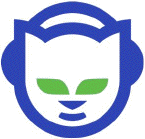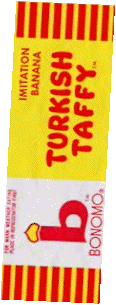
 Why Twitter is so valuable
Why Twitter is so valuable 
 It's the same reason Napster was so valuable before the RIAA shut it down and destroyed it.
It's the same reason Napster was so valuable before the RIAA shut it down and destroyed it.
Napster had captured the entire online music activity under one roof. A virtual monopoly. From there, in hindsight, you could have launched what eventually became iTunes, and had immediate huge market penetration from Day One. Apple would have made devices that hooked into Napster. They wouldn't have controlled the revenue flow of the music industry as they effectively do now.
Same with Twitter. The whole of the microblogging world is under their roof. It's the prototype for the news system of the future. Under competent management with a longer-term view and deep experience with news, Twitter would sweep the whole news landscape into its domain. To have almost exclusive control of the flow of news for a large portion of the world -- could that be worth $10 billion? Obviously, that and a lot more. $10 billion would be a bargain.
The Wall Street Journal employs writers and editors who were schooled in a world where the possibility of wrapping up the whole news platform was unthinkable. That's why they have so much trouble thinking about Twitter.
Hat tip to Felix Salmon for seeing this too, from his own point of view.
 Techmeme moves toward Twitter
Techmeme moves toward Twitter 
Techmeme added an interesting feature a few days ago. It wasn't announced publicly, so I'm not exactly sure how it works, but I'll take some guesses and hope that they get corrected by people in the know.
Here's a screen shot of the current Techmeme site, with arrows pointing at tweets appearing in the discussion sections.
http://scripting.com/images/2011/02/10/tmscreen.gif
1. Techmeme maintains what they call a "whitelist" of Twitter accounts that they regularly read looking for links to pieces that are currently on Techmeme. These people were chosen presumably because their comments tend to be interesting or influential. These were editorial choices.
2. At first I thought the links had to use Techmeme's url-shortener, but now it appears that is not true.
 3. When a comment appears, a link to it is added in the "discussion" section under the post.
3. When a comment appears, a link to it is added in the "discussion" section under the post.
4. Tweets can now be first-class items on Techmeme.
It's interesting that Techmeme has effectively become a surface for Twitter, organizing tweets by topics that are of interest to their readers. It's not certain that this will be compelling, and that the attention from Techmeme might influence what people say.
A few years ago, when flow-hungry bloggers realized that appearing in the "chorus" on TM could result in significant flow, you could watch a story percolate through the tech blogosphere. At times it got ridiculous as people struggled to find something interesting or original to say. That could be even more difficult when 140-character constrained.
Other publications should watch this experiment carefully. Even if it doesn't work with Twitter, it's an interesting model for what an integrated news system might look like in the future.
 Adding a message box to my river
Adding a message box to my river 
I mocked up where I want to go next with the beautiful river stuff.
http://scripting.com/images/2011/02/10/nextStepInRivers.gif
All I did was split the page horizontally and add a box where I can add a message to my output stream. I already have the back-end for this completed and debugged. I have a UI, but it's a pretty ugly HTML form. The goal is to integrate the two.
Here's a screen shot of the form I'm actually using, that's functional.
http://scripting.com/images/2011/02/10/messageEditor.gif
Notes about the editor.
1. The pop-up menu says which feed the item goes to. I can manage more than one.
2. The full link is entered in its own box
3. There's a link to the feed (the white-on-orange XML icon).
4. There's a link that pings TwitterFeed saying the feed has updated.
5. The number is a count of the characters in the box. I'm going to allow you to set a limit and it will turn red whne you go over the limit. (Not implemented yet.)
There's also a message area, to the right of the popup-menu, but since there is no message being displayed you can't see it. This is for confirmation messages like "Updated feed" or "Successfully pinged TwitterFeed."
I see this evolving quite a bit, but this is the core functionality. With these two pieces integrated, there will be the equivalent of a Twitter client that only uses RSS to communicate.
Cross-posted on the River of News list.
 Will JSON replace XML in RSS?
Will JSON replace XML in RSS? 
A frequently asked question goes something like this.
"I like JSON. What if apps started publishing RSS data in JSON."
1. My first answer: Sure, why not. I experimented with it in October, and found prior art -- a website that takes a feed and returns JSON.
2. I wrote both ends of a protocol that depended on JSONified RSS. It worked. I didn't find any dead-ends.
3. Now, that doesn't mean there aren't any dead-ends. If I were a betting man, based on past experience, I'd expect there are. But they wouldn't necessarily be the end of the process. It depends on how determined one is, and if a consensus can be arrived at as to which of the possible egregious hacks would be used to back out of the dead-end.
 4. Motivation. Now there's the really big problem. Why would anyone be willing to recode their RSS support to use JSONified RSS? I did it as an interesting hack, a diversion, something to pass the time while my brain warmed up for other work.
4. Motivation. Now there's the really big problem. Why would anyone be willing to recode their RSS support to use JSONified RSS? I did it as an interesting hack, a diversion, something to pass the time while my brain warmed up for other work.
5. If you run a news site, could you replace your XML-based feeds with JSON without losing a bunch of readers and potential readers. So you'd be stuck supporting both, for the indefinite future. Congratulations, you just made your life more complicated. What did you get in return?
6. But the world is switching to JSON. Isn't it? Answer -- yes, that does seem to be happening. For new applications. If it's going to happen in an existing app, like HTML or RSS, it's a very long way off. Do a view-source on any web page. See all those angle-brackets? Now think about all the brains that know how to do that. Installed bases like that come, at most, once in a generation. You can't wish them out of existence. If XML is meant to be replaced by JSON, that process will take many many years.
So RSS in JSON is technically a real possibility.
Will it happen? I wouldn't bet either way. It might happen. That doesn't necessarily mean it's a good idea. Or that it's not a good idea.
Will it replace XML-based RSS? Obviously, I don't think so.



